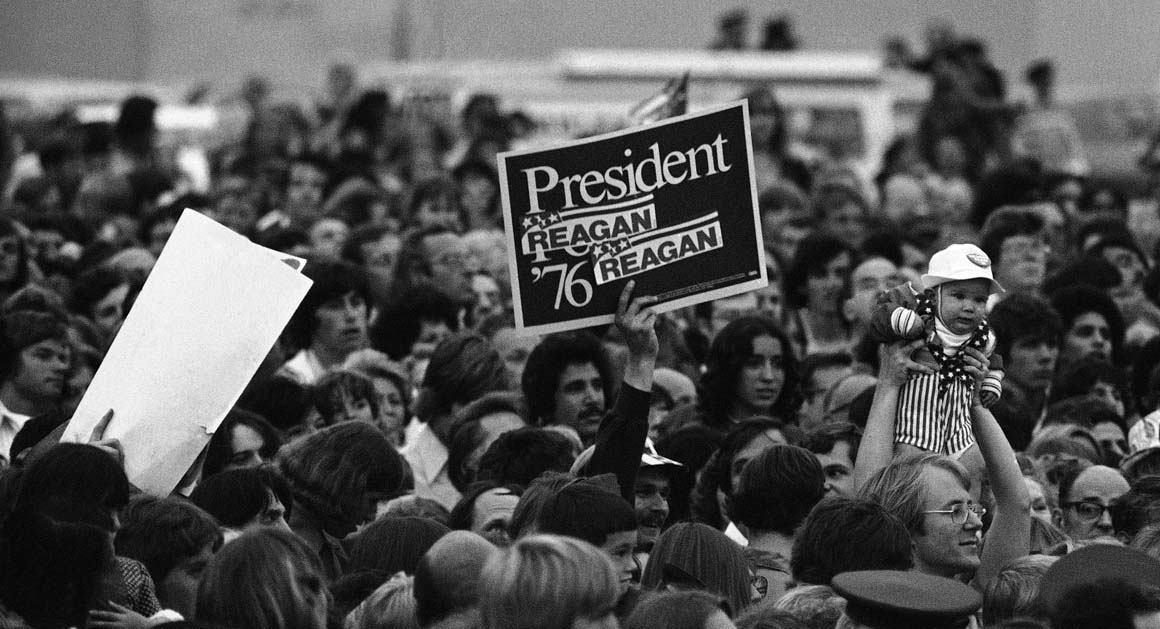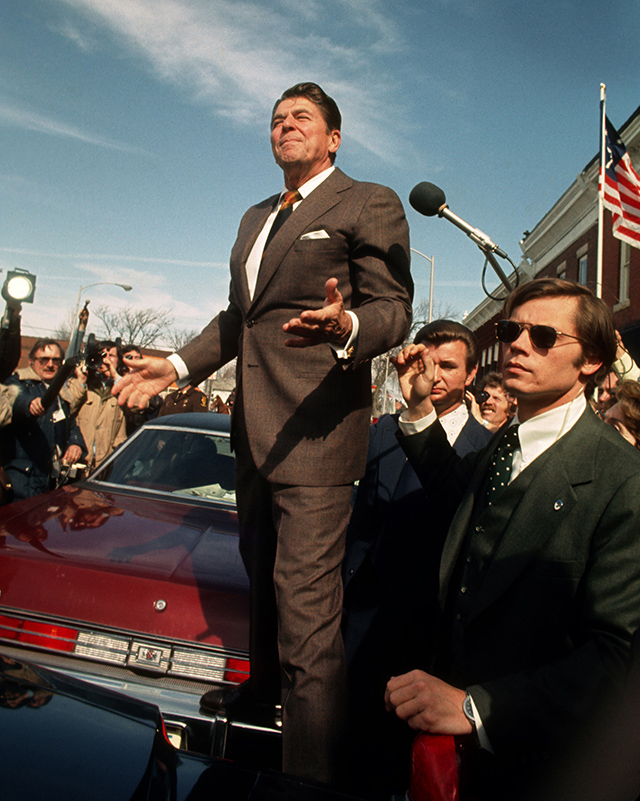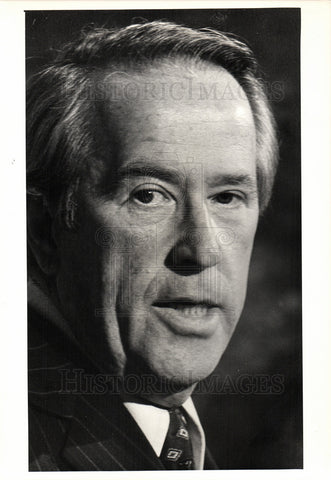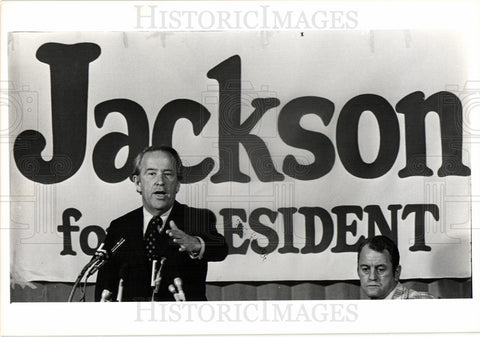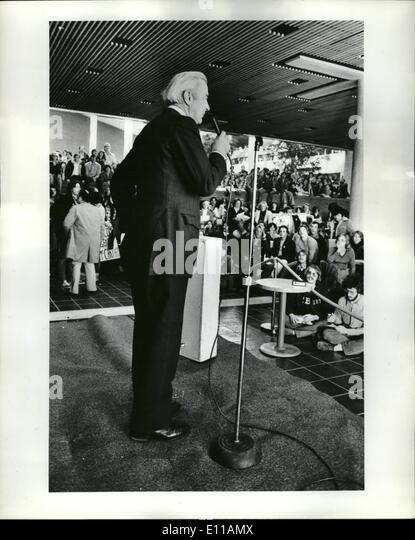The election started with Jackson in a very strong position. He had double-digit leads in the polls and was ahead in every region of the country except for the South, where it was still a close race, and even there the main battle was for the Deep South. It looked as if 1964 was about to be repeated. But Reagan wasn't going to give up. He saw, even as polls showed Jackson ahead by around 20 points, he saw a path to victory. If he could run as the outsider, the anti-establishment candidate, and win over voters distrustful of Washington, he had a chance. The South would likely go for him, so Reagan needed to win over the swing voters. To do that he had to be the outsider and portray Jackson as an insider, successfully combat the narrative he was an extremist, and he needed to be the Great Communicator. Even then it would likely not be enough. Reagan was determined to debate Jackson, he felt he could beat him there easily and gain momentum. Without a game-changer or a serious change in the race Reagan was doomed to a landslide defeat. And so Reagan/Schweiker started the general election campaign behind, but they still had a chance, if a slim one.
Reagan's conservative movement was still probably a minority, but a vocal one. Many Americans were sick of inflation, social turmoil, busing, detente, high taxes, an ever-expanding government and a government that now lacked credibility and was failing the American people. The problem for Reagan was that Jackson addressed many of these concerns with a more mainstream approach. He opposed busing and was a law and order politician, he like Reagan promised to end the social turmoil. He would also conduct a tougher foreign policy, though unlike with Reagan few feared President Jackson would start a nuclear war. Jackson had a liberal solution to the economic crisis, though he did not at all support major tax cuts. Jackson's approach was less radical and vulnerable to failing, but Reagan's was a more dramatic, radical and dangerous risk. He had to persuade the American people it was worth the risk. Reagan got started on the issue of taxes. The top marginal tax rate was at 70%, and Americans had lost faith in the ability of their government to solve their problems or spend their money wisely. Reagan made the case that taxes needed to be cut dramatically to stimulate the economy and he was the one to do it, saying "The more government takes in taxes, the less incentive people have to work. What coal miner or assembly-line worker jumps at the offer of overtime when he knows Uncle Sam is going to take sixty percent or more of his extra pay? Any system that penalizes success and accomplishment is wrong. Any system that discourages work, discourages productivity, discourages economic progress, is wrong. If, on the other hand, you reduce tax rats and allow people to spend or save more of what they earn, they'll become more industrious; they'll have more incentive to work hard, and money they earn will add fuel to the great economic machine that energizes our national progress. The result: more prosperity for all--and more revenue for government." In that area Jackson strongly disagreed, he declared "Governor Reagan says we need to cut taxes to the bone. He has proposed a plan that will make our tax system more regressive, that will unfairly benefit the wealthiest Americans and blow a giant hole in the budget. He wants to cut taxes because then he has to cut the social safety net. This is an extreme proposal to destroy our budget, make our tax system more regressive and destroy the social safety net. Governor Reagan wants to return America to 1920s economics, I don't, I want to get us moving forward."
Democrats did not underestimate Reagan. They knew his bad position in the polls was not an excuse to take the election lightly, polls had changed before, notably in 1968. And so the Democrats attacked Reagan on his conservative positions. Running mate Bentsen declared at a campaign stop on September 1 that "You like Medicare, right? You like your Medicare! If Ronald Reagan becomes President it's gone. It's true, folks, it's true, he said it, he's called Medicare socialized medicine. This is a very extreme man, a dangerous man. Scoop Jackson, he's not a dangerous man, he's someone we know and trust. We must elect Scoop as our President, he'll mend America, Reagan won't." Medicare was an issue in the campaign, in 1961 Reagan had spoken out against Medicare, calling it 'socialized medicine'. Democrats exploited that to hammer the Governor as an extremist. Jackson's campaign adopted a very negative tone against Reagan, in fact some pundits criticized the tone as too negative and said the Democrats needed to focus more on their program. But they got their point across.
In September the Reagan campaign pressed for a debate with Jackson. Reagan campaign manager John Sears desperately wanted a debate, and there was good reason for the Reagan campaign to want one. So far behind in the polls a debate could be a game-changer, and anyway there was little to lose. Reagan was known as charismatic too, and while many things could be said about Jackson charismatic wasn't one of them. So the Reagan campaign pressed for a debate, and Reagan kept mentioning it, saying "It's time we got together and debated the issues and we had a discussion in front of the nation." Jackson knew a debate was big risk, little reward. Jackson's campaign turned down a debate, Jackson aide Dick Perle told the media, "A debate isn't what we need. Those televised affairs, they're a distraction, they don't help people make the right decision. We've only had one debate in our history, there's good reason for that." Reagan's campaign mocked Jackson, and Sears said 'If Scoop isn't willing to debate us it's clear he isn't serious about openness in government." Jackson replied "No debate, no, no, no." The debate controversy hurt Jackson's image, and a public looking for openness shifted away from him. The polls began to narrow in September, a Gallup poll by the end of the month showed 48% Jackson, 40% Reagan and 4% McCarthy. The campaign was getting heated as it entered the final stretch, and it was clear. It was a very stark choice; liberal vs conservative, that was presented to the American people, and 1976 could potentially decide the ideological future of American politics and government. The polls were closing fast, but Jackson still had the lead. Still, entering October Democrats were staring to worry. The idea of President Reagan was a real possibility. But President Jackson was still more possible.
_______________________________________________
Due to butterflies and a different candidacy there will be no debates, which could have major butterflies going forward. The next update will go through the next part of the election and other aspects of it(such as McCarthy's candidacy, more of the electoral effects of Jackson's hawkishness). Hope you like it!


